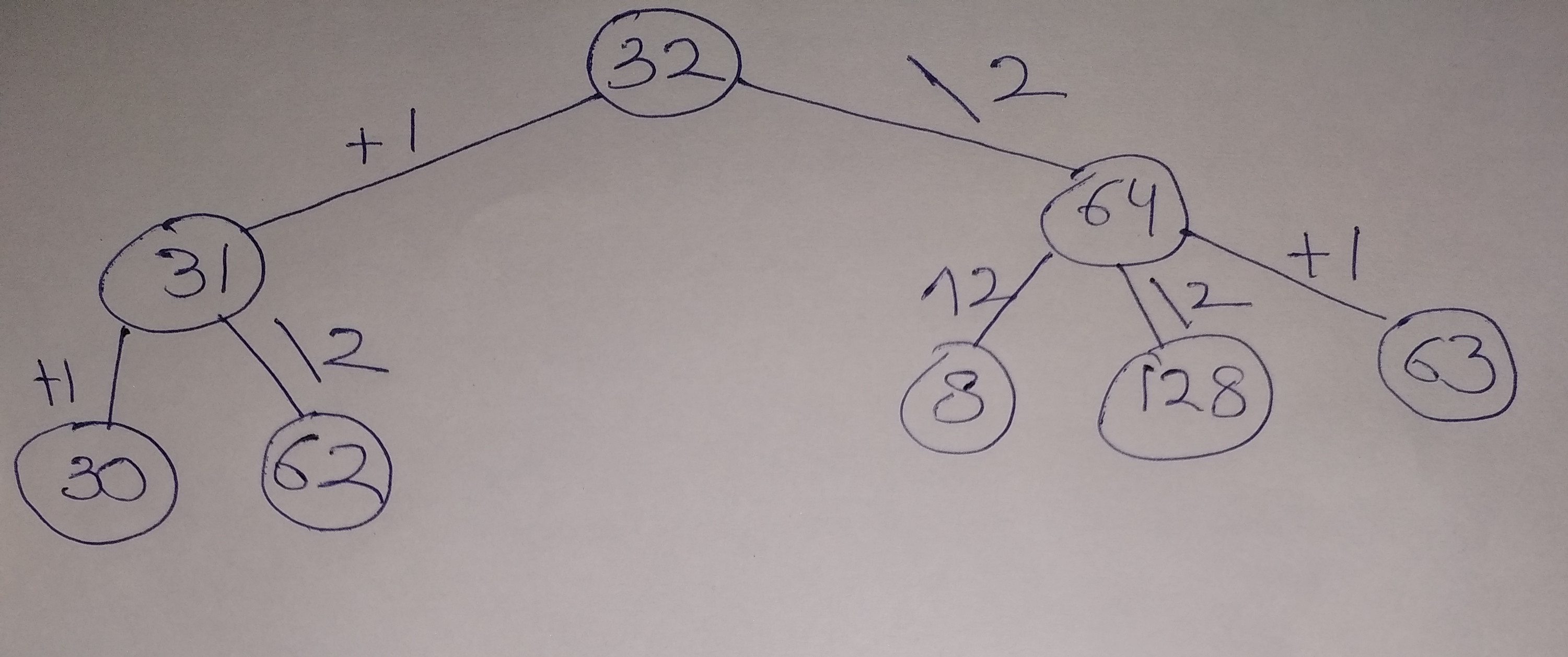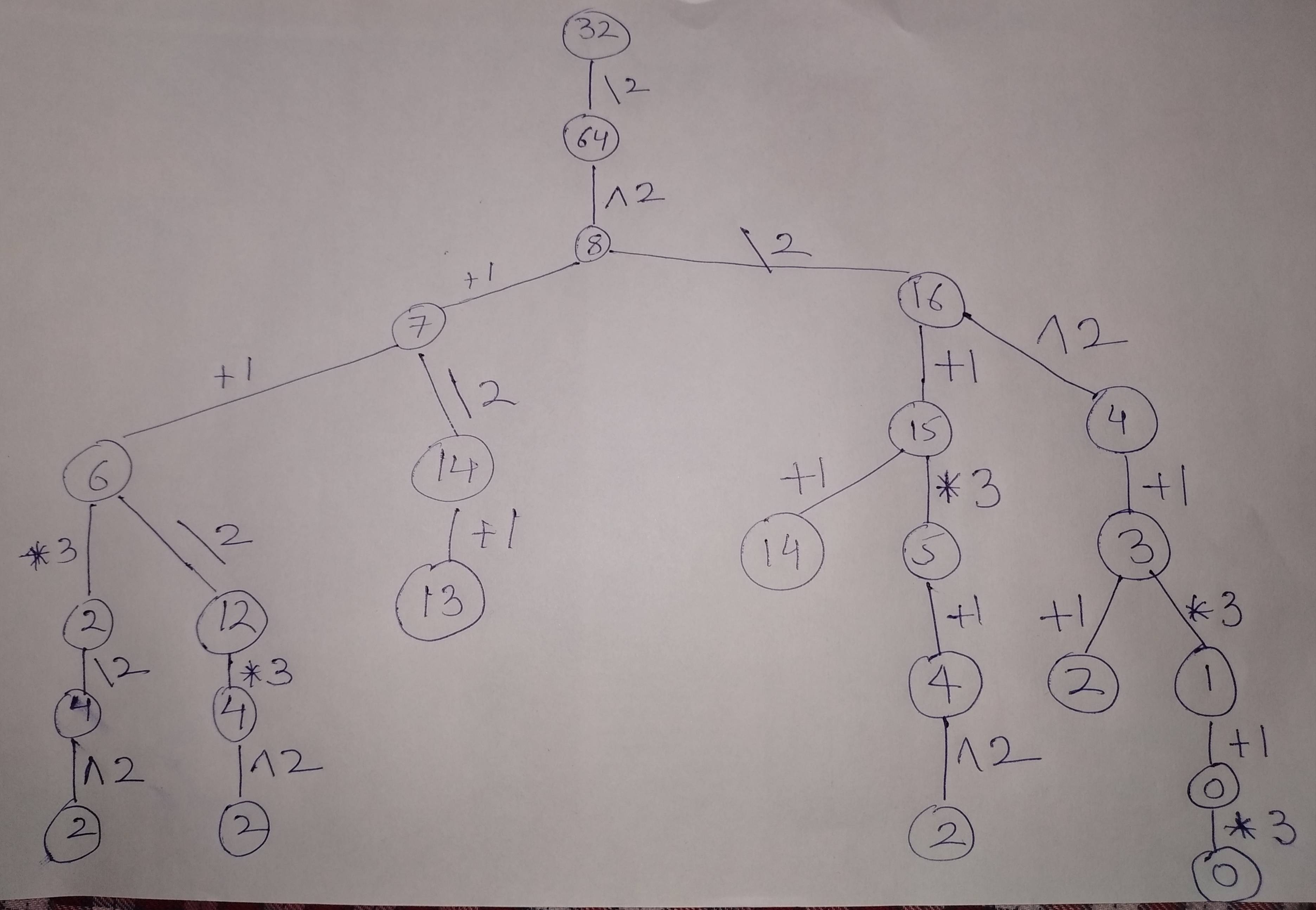I am assuming that we are looking for an integer solution. With this assumption, here is a top down approach that nobody else has used. The first question that needs to be asked is is that If a solution exists then what will be the last operator that would be used .
The last operator cannot be ×3 or ^2 as no integer × 3 = 32 nor (any integer)^2 = 32 . Therefore, the last operator to be used has to be either +1 or ÷2 . Therefore the numbers that are possible right before the last operator was used was either 31 (since 31+1= 32) or 64 ( since 64/2= 32). The following picture shows that there are only 5 ways to get to 32 using a total of 2 operations. 
The image below shows a complete expansion of one of the 5 paths shown above. As has been mentioned in the previous answers, we can see in the image below that there is indeed a path starting from 0 such that using all the 8 operators exactly once, we can get to 32.

